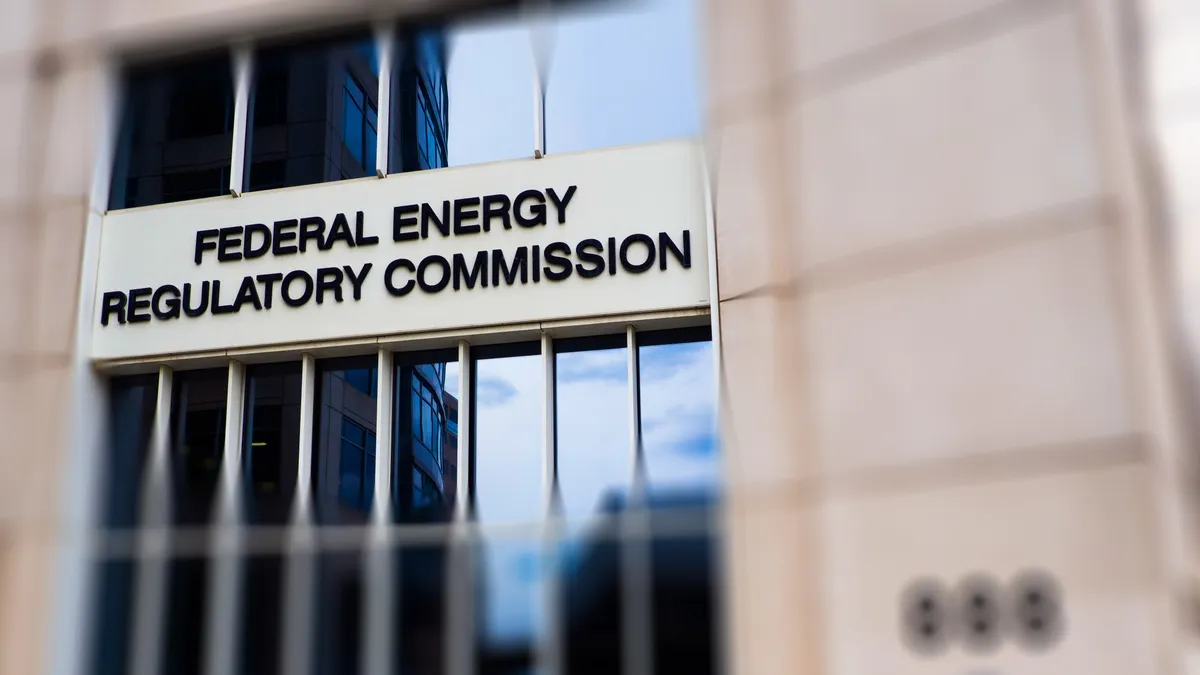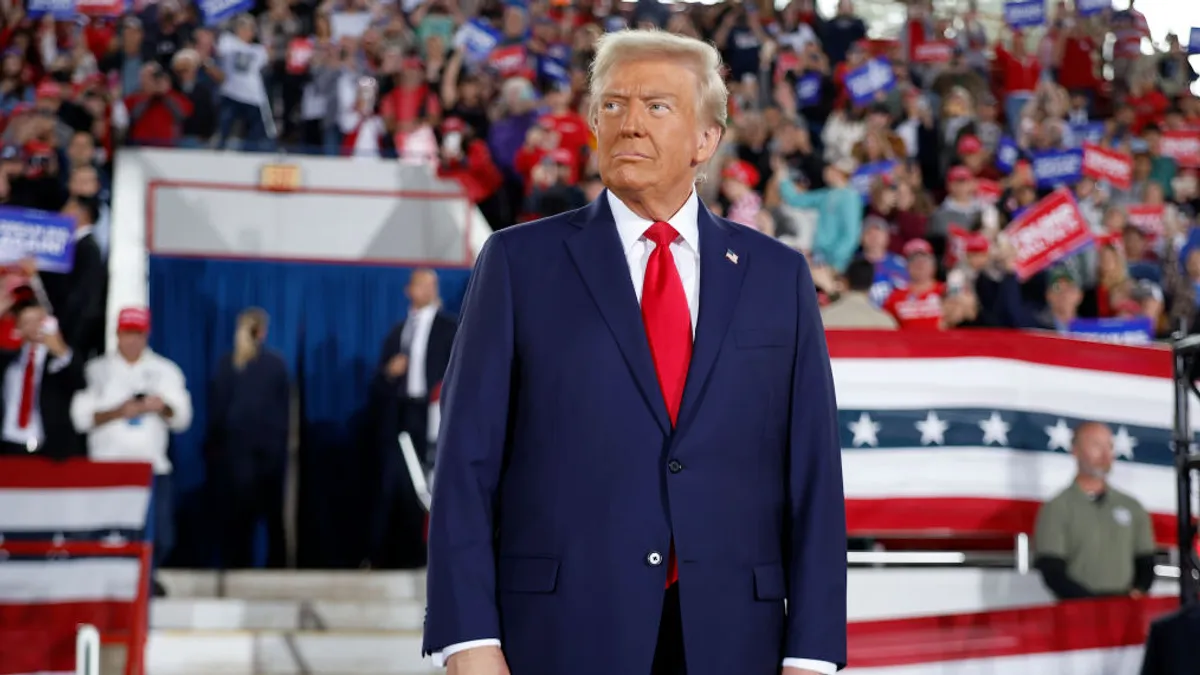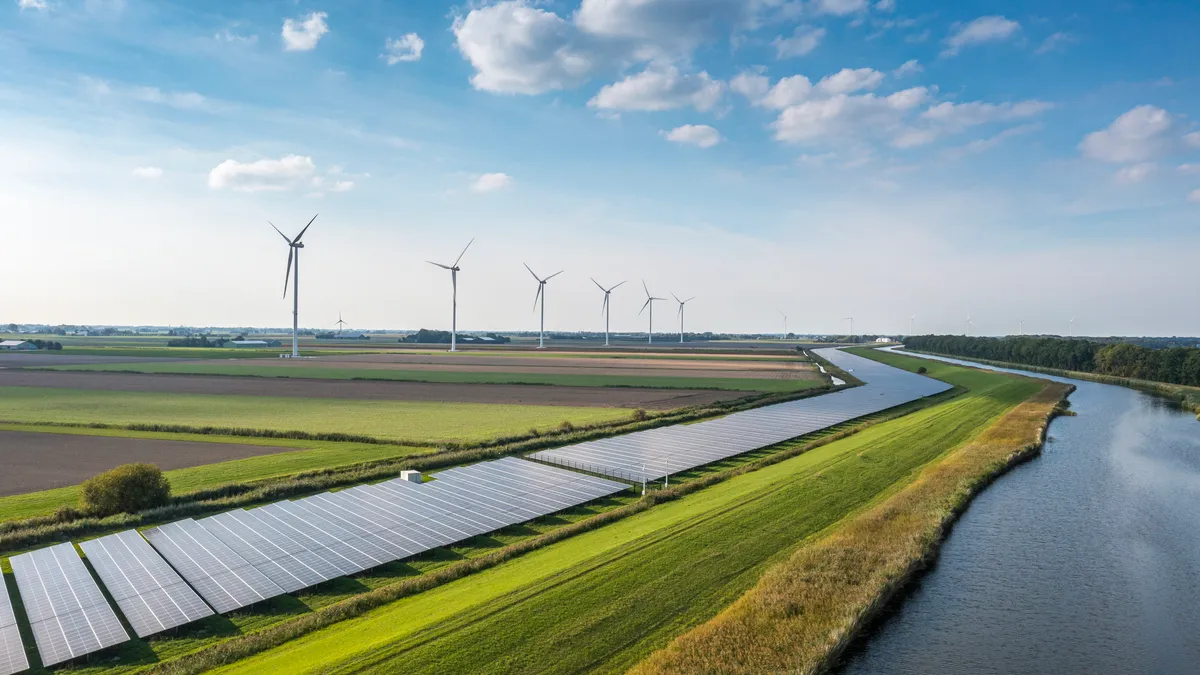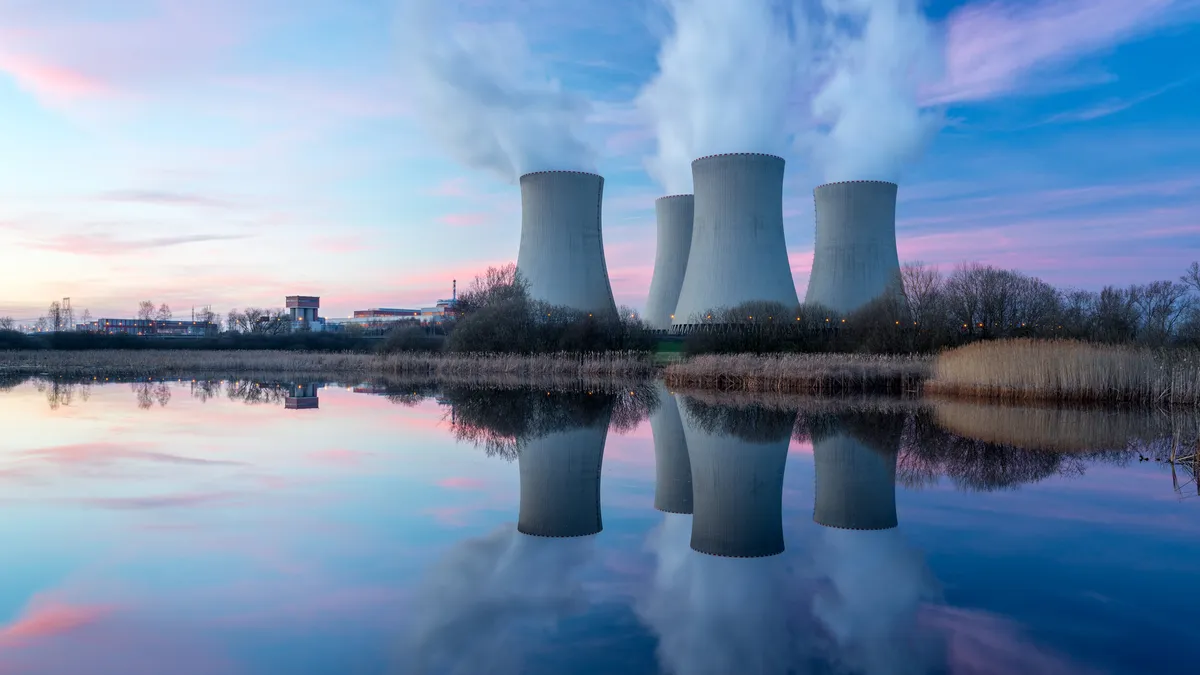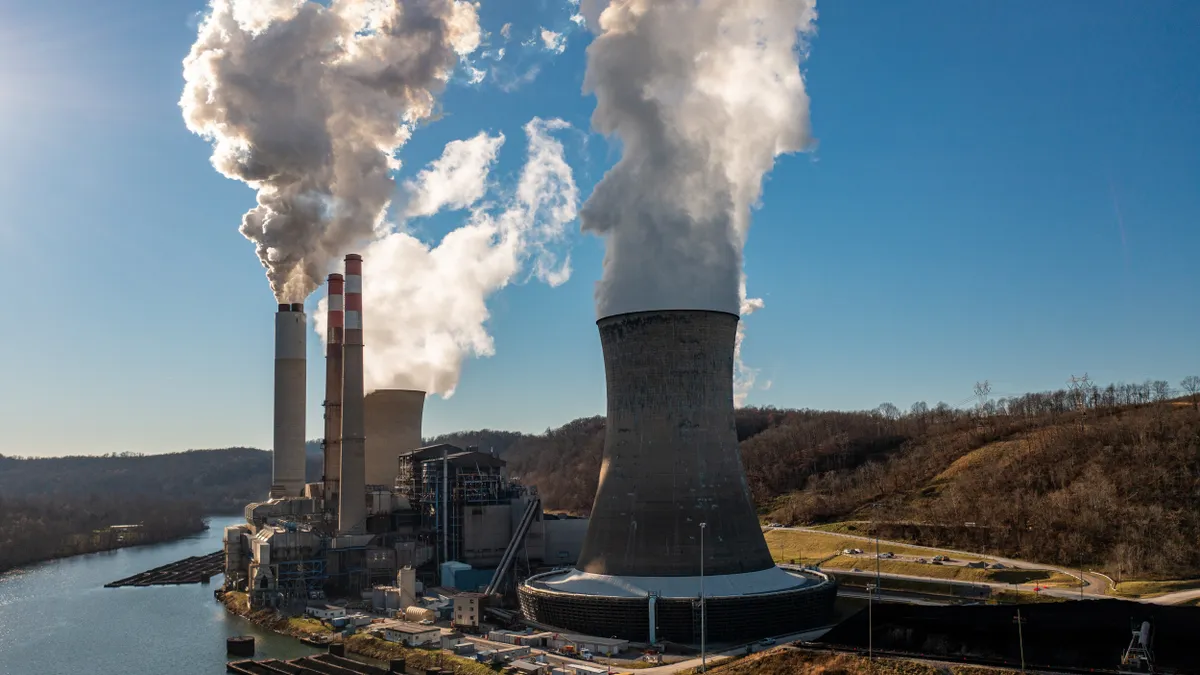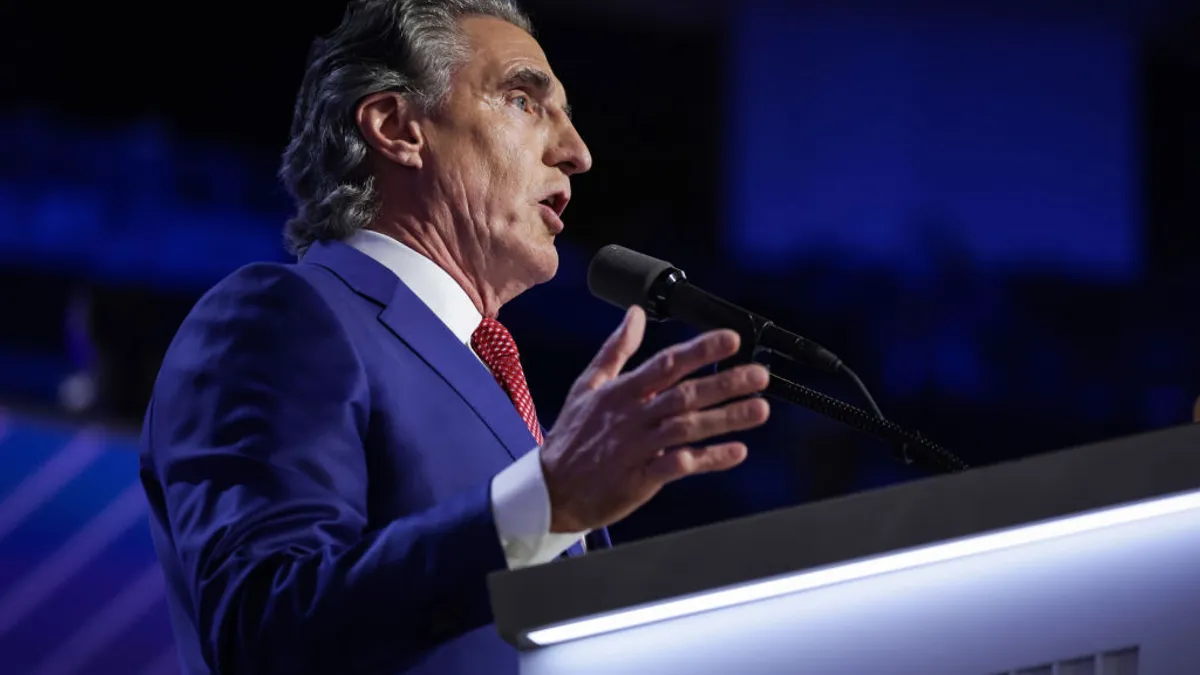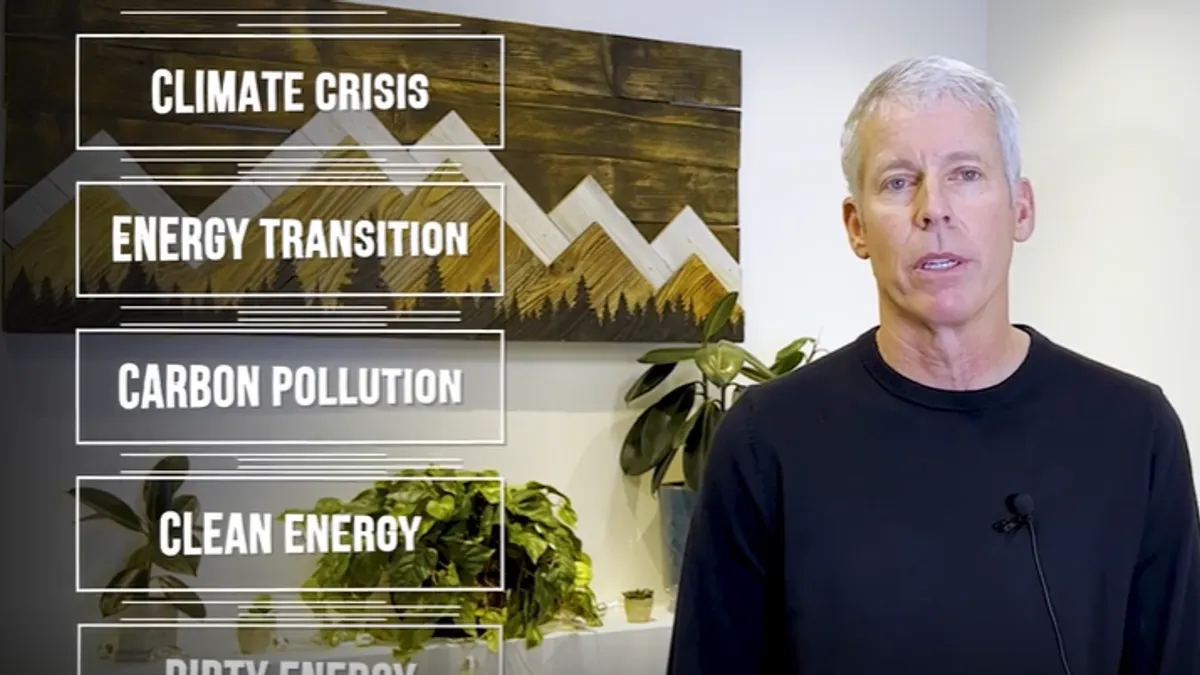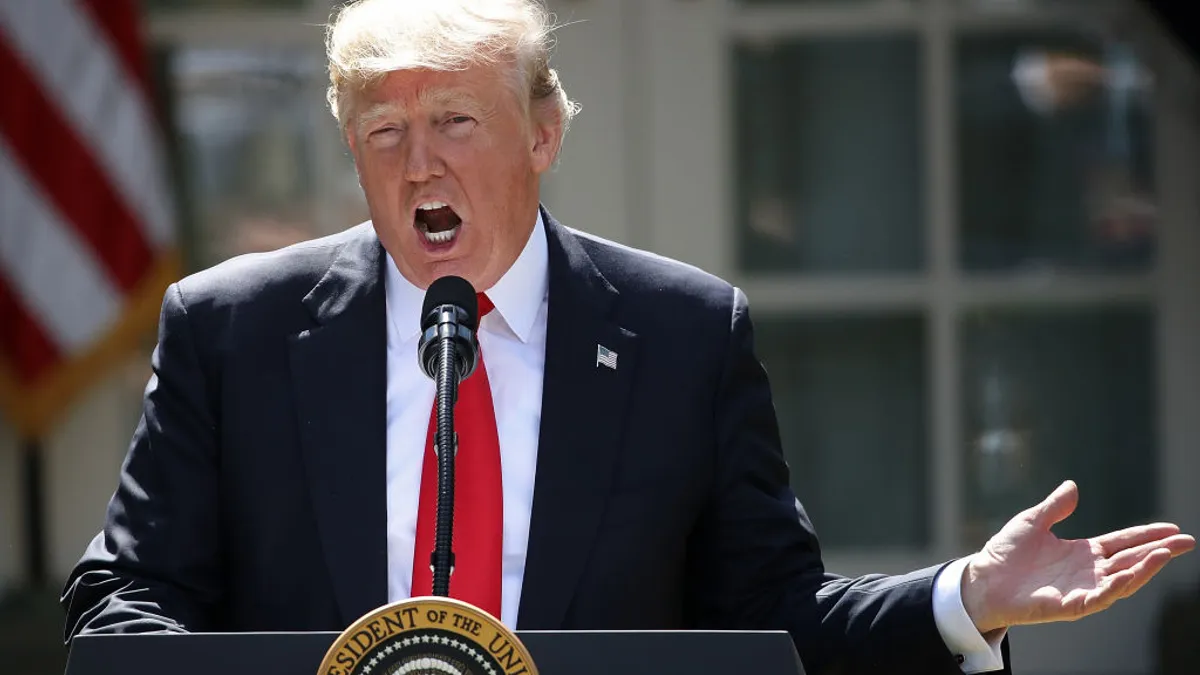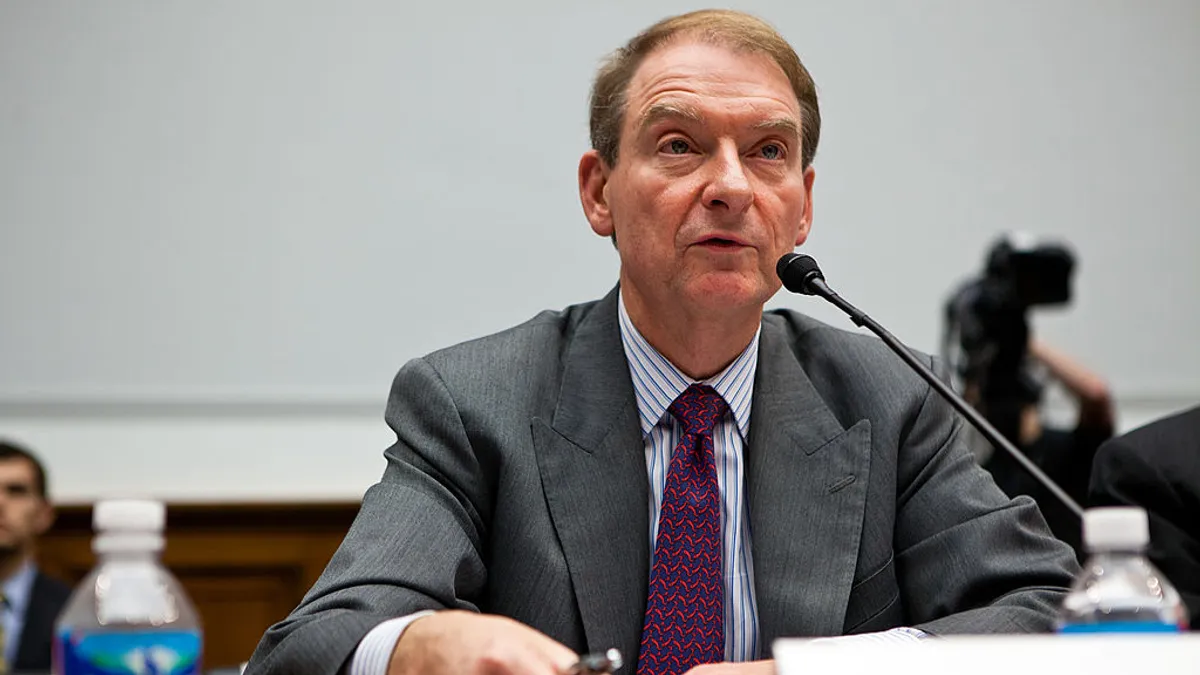Sustainable investing and clean energy experts are bracing for a change in atmosphere and priorities under a second Donald Trump administration, after the former president’s reelection Tuesday.
A Trump administration is expected to negatively impact the business prospects for the renewable power, transport and industry markets, as well as sustainable finance, according to a pre-election outlook by BloombergNEF. In emailed comments sent to ESG Dive on Wednesday, Sustainable Investments Institute Executive Director Heidi Welsh said Trump’s reelection is also “likely to have significant impacts on regulation of investors’ consideration of environmental and social factors.”
“Climate change risks will only be heightened by [the] U.S. deregulation that is certain to arrive with another Trump White House,” Welsh said. “Ignoring the biggest systemic risk the planet faces is not going to be good for the markets in the long-term.”
Trump has pledged to once again pull out of the Paris Agreement, expand U.S. oil production and to repeal President Joe Biden’s landmark climate action legislation, the Inflation Reduction Act. Despite Trump’s rhetoric and stances on energy and climate, professionals expect private sector action on climate, sustainability and clean energy to continue to accelerate, albeit at a slower pace.
Christiana Figueres, who served as the chief negotiator of the Paris Agreement in her role as the United Nations executive director for climate change from 2010-16, said in a LinkedIn post Wednesday that while Trump’s reelection “will be seen as a major blow to global climate action … it cannot and will not halt the changes underway to decarbonise the economy and meet the [Paris Agreement] goals.”
Continued investor demand for more action on sustainability is expected to help drive that push, as well as increased regulatory action on both the home front — in California — and abroad — in the European Union, among others — which already require large companies to make climate-related disclosures, according to William Theisen, CEO of sustainability consultancy EcoAct North America. These laws will require large companies to comply with climate-risk reporting requirements, regardless of what the Securities and Exchange Commission does with its own climate rule under Trump.
Additionally, a global push in other countries to cut emissions will propel U.S. companies to reduce their own emissions in pursuit of international growth, Theisen said in emailed commentary Wednesday. However, any decarbonization-related policies and incentives are not expected to come from any further legislation, which will decrease the need for U.S. companies to implement decarbonization measures on a wider scale.
“We do expect sustainability efforts in the U.S. private sector to accelerate, but not at the level if we had an incoming administration who was committed that climate change adaptation and emissions mitigation was a top priority,” Theisen said.
Mindy Lubber, CEO of environmental nonprofit Ceres, said in a Tuesday release that the private sector will be “critical” to keeping U.S. and global climate goals within reach, but the nation “stands at a crossroads in maintaining its world standing as a clean energy and economic leader.” Lubber urged the president-elect to “accept that Americans want to remain in the Paris Agreement” and fulfill its commitments.
“President-elect Trump needs to hear the urgent business call for government action to ensure the U.S. remains one of the best places in the world to build and deploy the innovative technologies that will grow the U.S. economy, create jobs and reduce energy costs in communities across the country,” she said.
As far as Trump’s pledges to repeal the IRA go, experts expect any changes to the law to be more targeted in nature, rather than a full or retroactive repeal. Eighteen congressional Republicans have already publicly opposed such a measure, and Crux — which operates a central platform for companies and clean energy developers to utilize the transferability function of the credits — said in a new report it expects any changes to the law to be “surgical” in nature.
Ernst & Young Global Tax Policy Leader Aruna Kalyanam told ESG Dive before the election that any IRA changes would likely come from “nipping and tucking,” rather than broader repeals or clawbacks. This view is shared by John Gimigliano, a principal at KPMG and former counsel to the Republicans on the House Ways and Means Committee.
“A full-scale repeal of the IRA is not going to happen,” Gimigliano is quoted as saying in the Crux report. “Congress rarely does that. It is going to be more surgical in the end.”
Jon Powers, CEO of clean energy investor Clean Capital and a former federal chief sustainability officer in the Obama administration, said that the renewable energy industry will need to “aggressively educate the incoming administration” on the strides the clean energy sector has made in the past four years.
“With the continued implementation of the Inflation Reduction Act and the Bipartisan Infrastructure Bill, the clean energy industry will need to continue lobbying against political headwinds and fighting misinformation,” Powers said in an email. “Additionally, it will be up to us to hold Congress accountable to ensure clean energy programs continue to receive the funding promised and to defend critical legislation like the IRA.”









